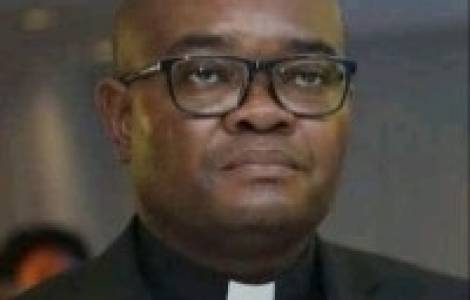
Abuja (Agenzia Fides) - The extension of the application of Islamic law (Sharia) in the States of Nigeria where there are religiously mixed families was the warning expressed by Fr. Lawrence Chukwunweike Emehel, Director of the Department of Mission and Dialogue of the Catholic Secretariat of Nigeria (CSN), during a press conference yesterday, February 13.
"The Constitution allows the application of Sharia in personal matters, but its implementation must be handled with caution to avoid the exclusion of other religious groups," said Fr. Emehel.
The priest warned that favoring one religious group over another could have a destabilizing effect, especially in the southwest, where families often have members of different faiths living together.
The issue was raised in the context of a controversy that has erupted in southwest Nigeria over the establishment of Sharia commissions in the region, with Muslim leaders stressing their right to self-determination and non-Muslim groups expressing concern over the potential impact of such Muslim commissions.
It all started late last year when a Muslim group in the town of Oyo, in southwestern Oyo State, announced its intention to establish a Sharia committee in the area.
The Supreme Council for Sharia in Nigeria (SCSN, Oyo branch) announced it would indefinitely postpone the inauguration scheduled for January 11, following protests that have erupted since then. At the heart of the controversy is the distinction between Sharia courts and Sharia commissions. According to Muslim leaders, Sharia panels are not courts but arbitration committees that regulate civil matters such as marriage, divorce, inheritance and disputes over contractual agreements between Muslims. "The desire to enforce Sharia stems from dissatisfaction with the current system, but it is crucial to ensure that any legal reform promotes integration and respect for religious diversity. We must recognize that Nigerians do not live in isolation and no law should hinder or restrict others in their practices. Our national identity and the constitutional guarantee of religious freedom must not be undermined," concluded Fr. Emehel in this regard.
During the press conference, the emergence of another concern on the part of the Nigerian Bishops was underlined: that of the spread among young people of forms of neo-paganism linked to materialism and the thirst for easy money. "To combat the allure of corruption and neo-paganism, we must focus on the formation of consciences. Without a solid moral foundation, people have difficulty distinguishing between right and wrong. The family remains the cornerstone of society: if we want to combat the "get rich quick" mentality, we must instill values of honesty, hard work and dignity in work, starting from the home, schools and places of worship", said Fr. Michael Banjo, Secretary General of the CSN. (L.M.) (Agenzia Fides, 14/2/2025)